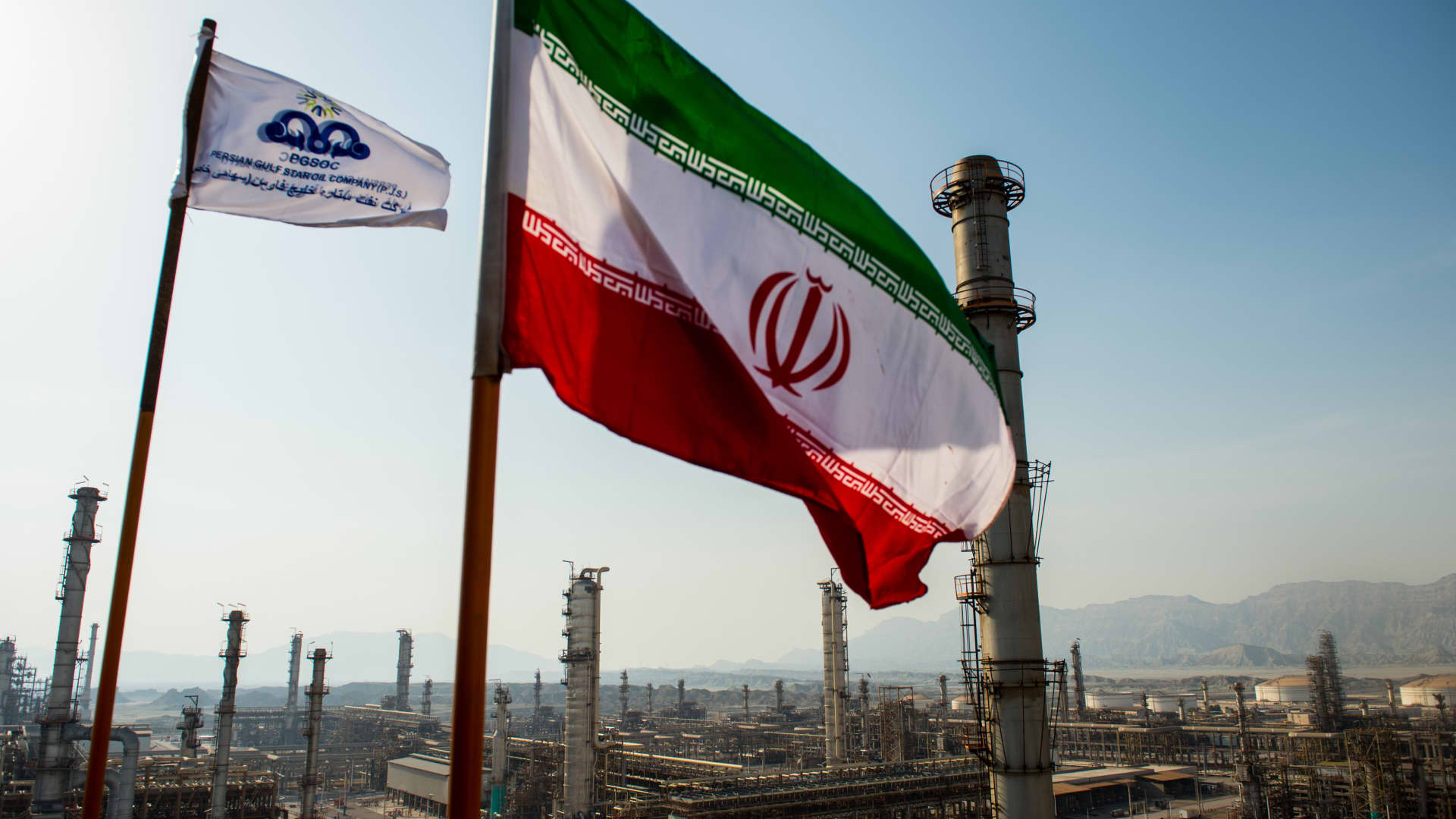The conflict between Israel and Hamas may not have a direct impact on oil supply, but it’s likely to drive up oil prices in the short term just based on fears of a wider escalation, according to analysts. Prices will shoot up if tensions do spread to the wider oil-producing region , they say. “There should be probably an additional $5 or so a barrel of risk premiums added, just based on not anything that’s happened so far, but the risk of supply disruption, the risk of escalation, which could send oil prices way higher,” said Josh Young, chief investment officer at Bison Interests, an investment firm focused on energy investments. Oil prices jumped 4% on Monday during Asia hours , in the wake of the attack. Young cited speculation that Iran aided Hamas’ attack on Israel on Saturday. Young and other experts said if that proves to be true, the U.S. could tighten the enforcement of sanctions on oil exports from Iran. However, Iran’s mission to the United Nations said on Sunday that Tehran was not involved in the attacks, according to Reuters. And U.S. Secretary of State Antony Blinken said on the same day there’s so far no evidence that Iran was involved in the attack. Iran was the fifth-largest crude oil producer in OPEC in 2021, according to the U.S. Energy Information Administration. The country also has the power to disrupt oil shipments in the Strait of Hormuz, a major oil artery . “Even something as simple as Biden and the U.S. defense establishment going back to actually enforcing sanctions on Iranian exports could have a pretty dramatic effect on the wider market,” Young told CNBC’s ” Squawk Box Asia. ” David Neuhauser, hedge fund manager at Livermore Partners, told CNBC Pro that the current market is already tight and more production taken offline “would only serve as the spark to much higher prices.” “Much more upside may occur if Iran is [dragged] into the mix and/or further escalation and uprising occurs in the region. It would not take much for oil to spike well over $100bbl+,” he said. Stocks to consider CNBC Pro asked fund managers and analysts which energy names they would focus on in light of the conflict. Young said names in international and offshore oilfield services should pick up as oil prices rebound. He named Nasdaq-listed Weatherford International , saying it’s the cheapest among its peers. He also likes Vital Energy , which he described as “too cheap.” “It just executed a large set of acquisitions and is well positioned for higher oil prices and more interest in the sector.” Generally, Young said oil and gas stocks are “particularly compelling.” ” Exxon seems to agree, reportedly pursuing buying Pioneer . There are even cheaper smaller cap equities open to those of us not needing to buy $60 billion companies,” he said. Neuhauser said small-cap energy stocks that have leveraged to increased oil prices are the ones to own right now. He cited Kolibri Global Energy and Vista Energy as examples, and said Jadestone Energy is “an attractive turnaround value play” tied to Brent prices. He owns all three stocks. Scott Nations, president and CIO at Nations Indexes, would not, given the situation, change his “general thesis that the best place to invest in the energy sector is integrated names which focus on the U.S.” Some stocks he likes are Chevron and ConocoPhillips . Here’s how much potential upside analysts covering those stocks gave them, according to FactSet.
‘Cheap’ and ‘compelling’: Pros name the oil stocks to buy — giving one over 120% upside













